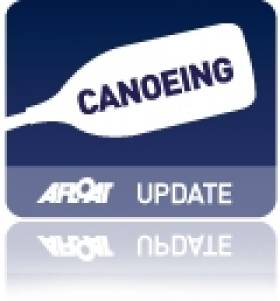Displaying items by tag: Poznan,
#Rowing: The Ireland women’s four took fifth place, 11th overall, in their B Final at the World Cup in Poznan this morning.
Britain Two won an interesting race. Poland held the early lead, with Ireland, Germany and New Zealand not far behind. As Poland dropped back – and Croatia dropped out – the lead was taken over by New Zealand. However, Britain Two and Germany were the strongest crews in the second 1,000 metres, with Britain snatching the win from Germany by five hundredths of a second.
New Zealand were third and Ireland were over a length behind fourth-placed Poland.
Ireland finished sixth in the B Final of the women’s pair, 12th overall. In a close race, the United States Two won from Germany and Chile. Behind them, one second covered Italy Two, China Two and Ireland.
World Cup Regatta, Poznan – Day Three (Irish interest)
Women
Four – B Final (Places 7 to 12): 1 Britain Two 7:10.74, 2 Germany 7:10.79, 3 New Zealand 7:11.06; 5 Ireland (T Hanlon, M Dukarska, A Crowley, E Hegarty) 7:19.68.
Pair – B Final (Places 7 to 12): 1 United States Two 7:48.08, 2 Germany 7:50.03, 3 Chile 7:50.50; 6 Ireland (C Feerick, E Lambe) 7:56.69.
#CANOEING: Ireland’s Barry Watkins reached two semi-finals at the ICF Canoe Sprint World Cup in Poznan in Poland today. He came closest to reaching the A Final in the K1 500 metres - he finished fourth in the semi-final, having won his heat. In the K1 1,000 metres he was second in his heat and fifth in the semi-final.
Jenny Egan reached the semi-final of the K1 500 metres, where she finished sixth.
Canoe Sprint World Cup, Poznan, Poland (Irish interest)
Men
K1 1,000m – Heat Five (1-6 to semi-final): 2 Ireland (B Watkins) 3:44.458. Semi-Final Two (1-2 and 3rd best time to A Final): 5 Watkins 3:58.572
K1 500 Heat Five (1-7 and one best time to Semi-Final): 1 Watkins 1:49.747. Semi-Final (1-2 and next best time to A Final): Watkins 1:49.618
Women
K1 500 – Heat One (1-6 to semi-final): 5 Ireland (J Egan) 2:07.163. Semi-Final One (1-2 and 3rd best time to A Final) 6 Egan 2:09.263.






























































